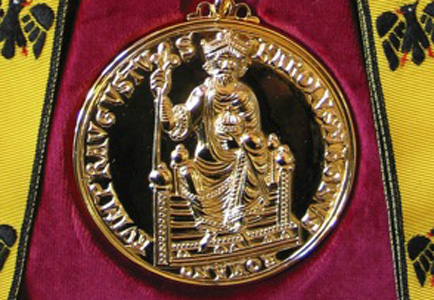
Charlemagne's contemporaries spoke of the "Father of Europe"
Charlemagne expanded the Franconian realm to almost twice its original size. At the height of his power, he ruled over the most important parts of the declined Western Roman Empire and bore the title of the ancient emperors. His contemporaries named him Pater Europae, the Father of Europe.
However, in Charlemagne's time there was no concept of European integration in its modern sense. But some of his reforms do indeed seem surprisingly modern in that they aimed at the creation of uniform standards for an empire in which many different peoples coexisted, with different languages and scripts, different currencies and laws, and different social forms and traditions.
After the Second World War, Charlemagne became a European symbol. The Council of Europe acknowledged him as a key figure in the history of Europe. In Aachen, the International Charlemagne Prize was created, an award still presented annually in honour of services to the cause of European unification.
International Charlemagne Prize medal, based on a medieval city seal
Aachen 1950
Charlemagne the European
(from Einhard, The Life of Charlemagne, written circa 840)


